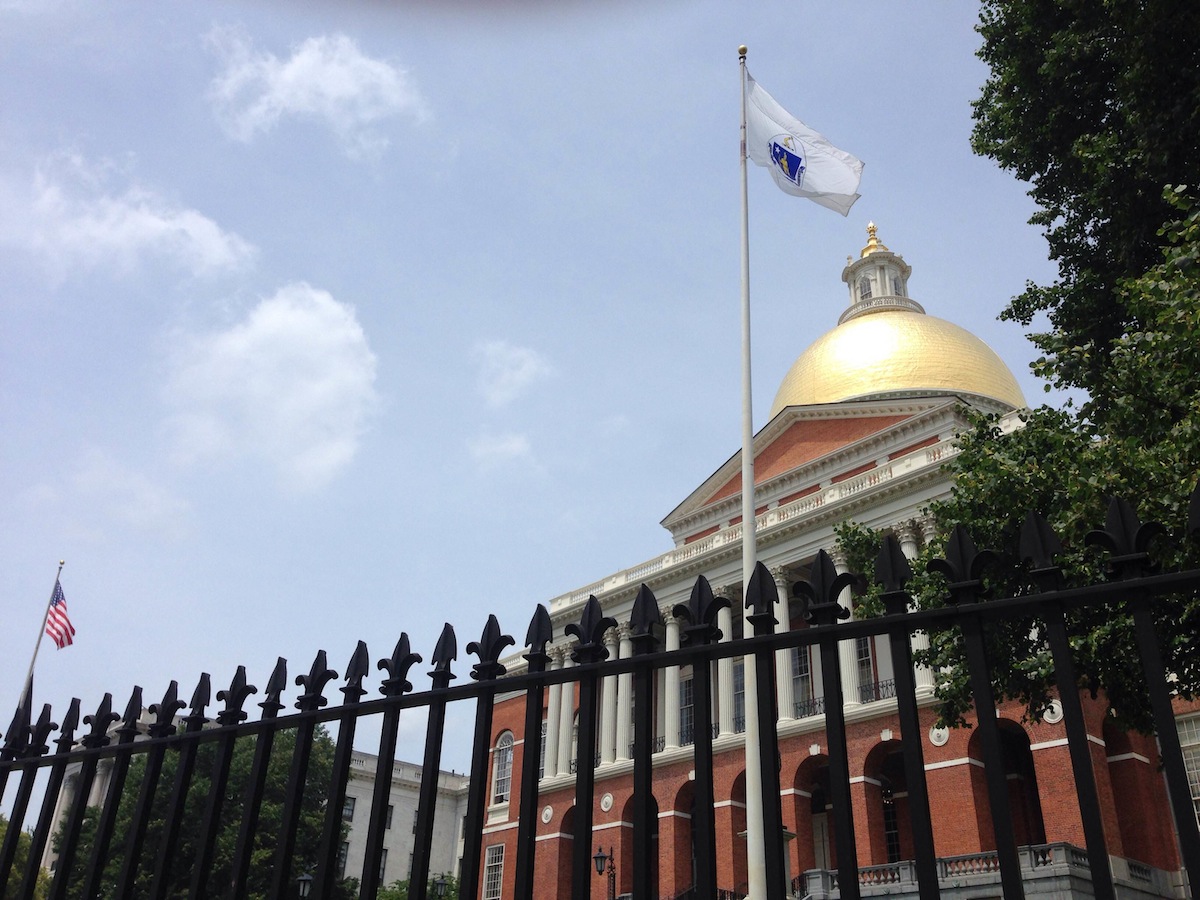Battle for Ban on Non-Competes Brings Backers to Beacon Hill

photo by Steve Annear
A second meeting to discuss a possible ban on non-competes in Massachusetts drew a large crowd at the State House Tuesday afternoon, with supporters of the measure calling on elected leaders to do away with the binding agreements that they claim cause economic hardships.
“More and more people have turned out to tell us why non-competes are bad for Massachusetts,” said Greg Bialecki, State Secretary of Housing and Economic Development. “Massachusetts must do everything we can to maintain growth and business [opportunities], and the use of non-competes impedes these goals.”
Dozens of people packed into a conference room on Beacon Hill, standing shoulder-to-shoulder, to testify during the hearing before the Joint Committee on Economic Development and Emerging Technologies. It was the second hearing of its kind on this particular issue.
Among those who spoke alongside Bialecki was Paul Burnstein, an MIT-educated physicist who was terminated from his job, but unable to work for competing companies in the area for an entire year because of a non-compete agreement.
“In the startup world, a [one-year non-compete] is bloody forever,” said Burnstein, adding that the binding contracts leave workers with limited options, like uprooting their lives and moving to states like California, where non-competes are less intrusive.
“All you can do is move to California,” he said. “If I had to do it all over again, I would have gone to Palo Alto rather than put up with this garbage in Cambridge.”
In April, Governor Deval Patrick included a provision in his economic redevelopment package that would have disposed of non-competes in their entirety, and safeguarded science and technology companies that harbor sensitive information specific to their practices by adopting the Uniform Trade Secrets Act. But House and Senate lawmakers bypassed an opportunity to include a complete ban on non-competes in their own economic redevelopment legislation.
As the end of the legislative session nears, some supporters of a ban are hoping elected officials at least come to a compromise on the issue, even if it means limiting the timeframe non-competes are active, or relinquishing restrictions on those who are fired from a job, like Burnstein.
Not long after the meeting, the Senate voted 32-7 in favor of compromise language limiting the use of non-competes, and banning them outright for hourly workers. Some people, however—mainly in the startup and venture capital scene— are still holding out for a complete override.
Philip Gordon, an attorney from the Massachusetts Employment Law Association, said the firm refers to non-competes as “one and done,” because if a person doesn’t sign an agreement, they can’t work, but if they do and then try to leave a company, they can get wrapped up in lengthy legal battles.
“You won’t work again here in Massachusetts, whether [the non-compete] is enforceable or not, because who wants to spend two years waiting to find out if the court rules a non-compete isn’t enforceable?,” he said.
According to Bialecki, the arguments about why non-competes are harmful to the workforce extend well beyond the tech and science sector. “This is an issue that affects Massachusetts residents of all kinds,” he said.
That much was evident when 19-year-old Colette Buser took to the podium Tuesday and detailed her own experience of dealing with a provision in her employee contract that kept her from pursuing a new job at a competing summer camp. Buser, who worked for LINX in Wellesley when she was 16, said she was unaware that her contract included a non-compete, which in the end derailed her opportunity to work for a different company. “I was shocked and disheartened,” she said.
The owner of LINX claimed that the non-compete was in place to protect “intellectual property” such as “training and fostering” counselors in their unique environment.
But during her testimony at the State House, Buser balked at the argument. “LINX was not a tech firm, and I was not designing computer chips. I was a teenage camp counselor,” she said.
While Buser’s example compelled the audience, and seemed to garner sympathy from the committee, others have still argued in favor of keeping non-competes alive, especially in cases where it creates unfair competition.
Shep Davidson, a partner at the Boston-based law firm Burns & Levinson, and co-chair of the firm’s business litigation department, said generally non-competes are not unfair. “I think they are valuable for the employers,” he said. “You invest your time and money into the person and ask them to sign an agreement that says, ‘hey, you’re not going to compete with me for a year after this.’ I think they’re important for businesses.”
Davidson, who was not at Tuesday’s hearing but has litigated on both sides of the argument, said workers shouldn’t be allowed to obtain knowledge about a company’s operations, and then freely leave to pursue their own similar endeavors. “They have given this person specialized knowledge, so I don’t see why that’s unfair to have them sign a non-compete. I don’t think an employee should be able to walk in and get information, and then use it to compete against them. That puts a damper on the ability of people to disclose things.”
Similarly, Richard Baker, president of New England Intellectual Property, said the committee should vote against a ban. “It would support dishonest and wealthy competitors,” he said.
With 30-days left in the legislative session, there’s still an opportunity for lawmakers to come to some sort of agreement on the issue, or do away with the provisions completely.


